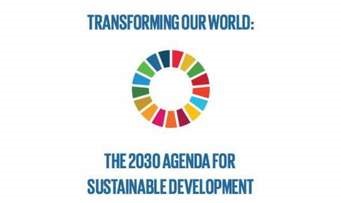When I think about effective advocacy, I think about the process of “barnacling” described by a remarkably successful change agent, Donna Butts, the founding director of Generations United. Like tiny snails, barnacles grow and are firmly attached to the bottoms of ships that glide through the sea. Donna said, “If we want something, we just make sure that our request is attached, like a barnacle, to every piece of relevant legislation that’s passing through.”
I was reminded of Donna’s advice when I recently reviewed the Manifesto for European Parliament Elections 2019: Achieving Equal Rights and Dignity for Older Persons. The Manifesto was published last spring by AGE Platform Europe, a network of organizations promoting the interests of people 50+ in every European country. The Manifesto describes the importance of 45 concrete actions in seven categories that are necessary to ensure that everyone is valued and empowered to lead an active and autonomous life. Then the Manifesto shows how those actions are accommodated through 13 of the 17 Sustainable Development Goals (SDGs) that were approved by 193 countries in the United Nations, September 2015. Thus the Manifesto securely connects support for and from older persons as an essential element for accomplishing most of the UN’s goals. If this connection is promoted effectively through the election process, it could make a big positive difference in policy making affecting older adults. See the detailed goals charted here by clicking on UN Sustainable Development Goals.

There has been a huge swell of commitments to the SDGs on the part of towns and cities, states and countries, for-profit and non-profit business organizations throughout the world. Agreement on the SDGs connects proponents for social justice, economic justice, and environmental justice – all of the advocacy groups working for policy change in each of these sectors. Members of the Action for Sustainable Development platform https://action4sd.org/ now include over 2,000 organizations and activists from over 150 countries who are committed to ensuring a transformative agenda.
The AGE Platform Europe strategy contrasts with the single-minded focus of the UN’s Open-Ended Working Group on Ageing (OEWGA): Approval for a UN Convention on the Rights of Older Persons. The convention would be similar to CEDAW for women — the Convention to Eliminate Discrimination against Women passed by the UN in 1979.
At its 9th annual session last July, OEWGA considered suggestions for the convention that would support both autonomy and independence, and long term and palliative care for older persons. At the 10th annual meeting coming up in April, OEWGA will also consider adding provisions for social protection and social security, and education and capacity-building.
What’s the future for the Rights of Older Persons document? The word last July was that some large countries may hold back from voting or vote against the convention because they see that it will expand government costs. A different group sees that the convention focused exclusively on older persons will end up pitting old against young in the competition for resources.
My own sense is that we need all the multi-generational, multi-cultural, multi-disciplinary support that we can get! It’s a lot more fun to collaborate than it is to compete. We need to show how older adults are contributing wisdom and caring and leadership when they can access services and security and are treated with dignity. And we need to speak up and say to policymakers and care providers, “Nothing about us without us!”
When our liaison in Nigeria, Mark David Oludare, convened a conference on ageing a year ago, he said that it was a conference for Seenagers. Let’s all be Seenagers – letting our light shine in 2019!

